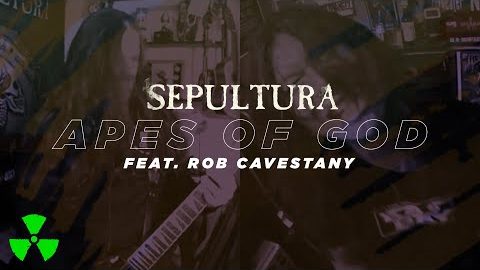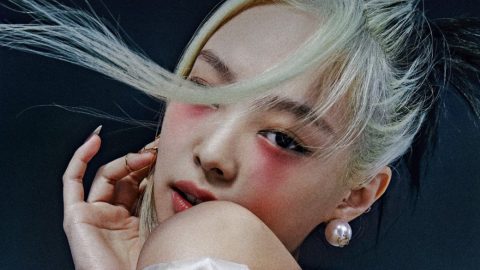
Horror films are so often about women, but, historically, horror stories on film have rarely been told by women. That has started to change in the last decade, with directors like Jennifer Kent (The Babadook), Anna Biller (The Love Witch), Karyn Kusama (The Invitation), Alice Lowe (Prevenge) and Rose Glass (Saint Maud) making eerie films about women who do much more than scream and cower. Joining that list of great female horror directors is Prano Bailey-Bond, whose feature debut, Censor, is one of the most striking British horrors in years.
Set in the 1980s, Censor takes place amid the furore over the ‘Video Nasties’. This broad group of horror films were ‘banned’ by the British Board of Film Classification for being too obscene for the public. These days, many of those films – Evil Dead, Suspiria, Dawn of the Dead – look relatively tame (while some are even considered classics), but at the time it was believed that merely watching them would be enough to warp people’s minds and inspire copycat crimes.
Censor follows Enid (BAFTA-nominee Niamh Algar), an apparently level-headed censor who is shaken after she watches a movie that seems to echo the events that led to the disappearance of her sister. As Enid obsessively tries to find out more about the film, the line between reality and fantasy starts to blur.

“I had the idea for Censor around 2012,” Bailey-Bond tells NME. “I was reading an article about Hammer Horror [the British studio that made the likes of Dracula, The Mummy and Curse of the Wolfman] which looked at how film censors worked in that period. It made me think, ‘If violent images are meant to make us lose control, what prevents the censor from doing that?’ It was that hypocrisy of thinking, ‘I can watch this, but if you watch it you’re going to go out and shoot someone’.”
Censor could have been set at any time, but Bailey-Bond settled on the Video Nasty period because “that era is fascinating and rich when it comes to our relationship with horror. The UK had one of the most conservative censorship bodies.” This was a time when VHS was taking off: as more people than ever could watch films at home, prudish types were “worried children would be taken over by something evil from the TV set”. It was also a time of extreme conservatism in government: Margaret Thatcher was prime minister and the country was deeply divided as blame and fear pervaded.
The film’s ’80s setting gives Bailey-Bond a fractious backdrop for her horror story. Enid’s own mind starts to fall apart as fear overtakes her, but the world around her is almost as irrational. “There was a convenient scapegoating of anything terrible happening in the world,” says Bailey-Bond of that era. “‘Let’s not look at the government… or what they’re taking away from society… Let’s blame it all on a bunch of horror films’.”

Bailey-Bond was too young to be aware of Video Nasties at the time (she was born in 1982), but the ’80s was also when she began her horror education. “I grew up in the middle of nowhere in Wales, with my parents’ VHS shelf as my way into cinema,” she says. “They had really good taste, fortunately. There were lots of John Carpenter and David Lynch films.” The youngest of three siblings, she was always keen to see what her older brother and sister were watching. “I remember when I was in primary school they watched Twin Peaks and… it was mind-blowing. It’s not necessarily horror, but it was surreal and uncomfortable… and bizarre and scary. I think that was a big influence on me.” That influence took Bailey-Bond into an early career of directing short films and music videos, all with the same sinister beauty she brings to Censor.
If horror directed by women has only recently become more commonplace, Bailey-Bond says she was always aware that there were women in horror – if you looked. “One of my favourite films when I was a teenager was American Psycho, which at the time I didn’t know was directed by a woman [Mary Harron]. And then there was Near Dark [Kathryn Bigelow]. There weren’t masses, but they have been there.”
Bailey-Bond has watched on as the landscape has changed, with more and more women making horror films. When it came time for Bailey-Bond to shop around her idea for her directing debut, it wasn’t so unusual anymore. “The way we’re talking about gender and representation [now], that feels like it’s allowed a platform where we’re actually celebrating and lifting up female directors working in the genre more than we have in the past.”

For the role of Enid, Bailey-Bond chose, by both fortune and accident, an actress who is ascending as quickly as her director. She and Niamh Algar actually met well before they started on Censor: in 2018 they were both included in Screen International’s ‘Stars of Tomorrow’ list, and were put on the same table at a dinner celebrating the honourees.
“We just kind of hit if off, sitting and talking about movies,” says Algar, who is nothing like Enid in real life. Where Enid is brunette, English and quiet, Algar is blonde, Irish and gregarious. “About six months later, my agent sent me a casting and I saw Prano’s name and immediately thought, ‘Oh that’s someone I want to work with.’”
For Algar, Censor caps a very strong couple of years career-wise. She’s played a lead role in the Ridley Scott TV series Raised By Wolves (and has already shot the second season) and she was BAFTA-nominated last year for her role in Calm With Horses. Although it wasn’t strategised that way, adding Censor to her CV is a good way to show she has great taste in both big budget projects and indie movies. “I always want to play characters that I suppose people wouldn’t put me in the same box as,” she says. “The best compliment I’ve had was when Mark Kermode said, ‘Niamh Algar is a character actor.’ Yes!” There’s certainly no doubting that Enid is a role that asks a lot of Algar. We won’t spoil where the film goes, but Algar has to show a lot of different shades to Enid. It will be no surprise if it brings her a second BAFTA nomination.
One of the most striking things about Censor is that even though it’s set nearly 40 years ago, it could take place at almost any time. Censorship is something that always exists: there will always be people trying to police what others watch, out of fear dressed up as concern. On the day NME speaks to both Bailey-Bond and Algar, Twitter is aflame with pearl-clutching types objecting to Lil Nas X kissing his male back-up dancer at the BET Awards and doing a pixelated nude prison dance in his ‘Industry Baby’ video.
“I think there are parallels you can draw right now with the 80s,” says Bailey-Bond. “We’ve seen these moments of hysteria happen over the years. In the ’50s, it was comic books and people worried about their effect on little boys. More recently, we’ve had video games, Marilyn Manson videos and rap music.”
There will always be someone insisting that we must think of the children. And hopefully there will always be someone like Prano Bailey-Bond to hold a mirror up to them and scare them into self-reflection.
‘Censor’ is out in UK cinemas on August 20
The post ‘Censor’: behind the screams on 2021’s most striking horror film appeared first on NME.







